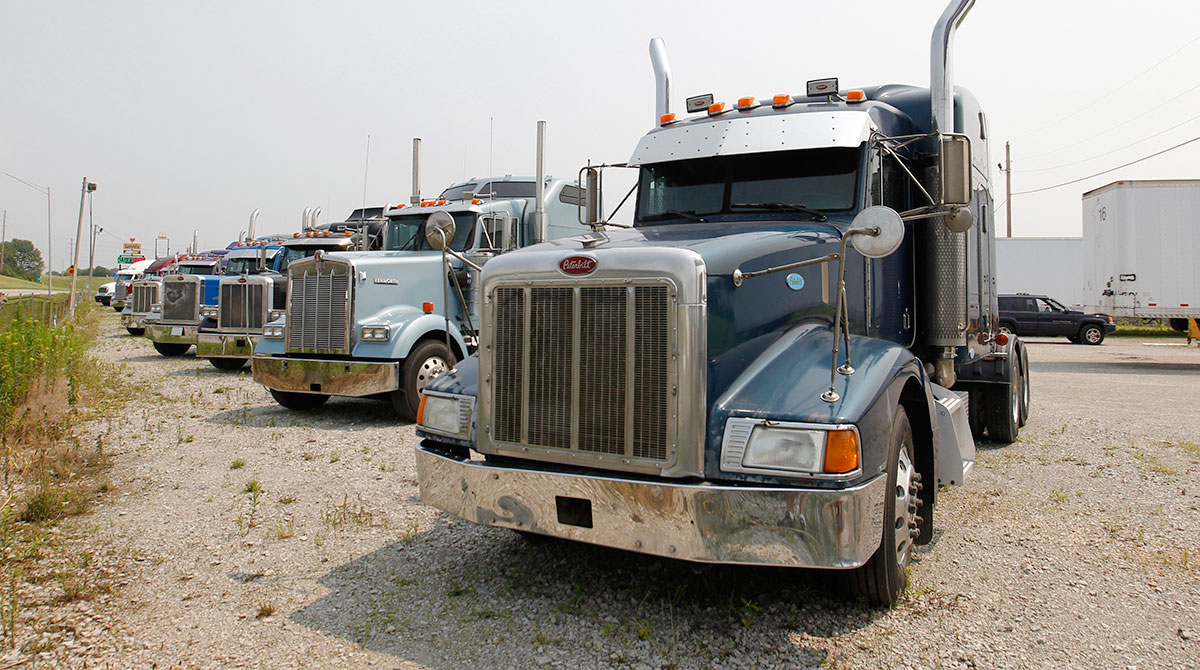The average retail price for a used Class 8 vehicle in November inched higher though sales declined by a few hundred units and mileage rose compared with a year earlier, ACT Research reported.
The average price for a used Class 8 was just about to go negative on year-over-year values, ACT added.
The average price was $81,517, a 1% increase compared with $80,539 in the 2021 period. November’s price also dropped further compared with $83,874 a month earlier, according to ACT.
“We are poised right at that point where the change [in the market] is about to become official, if you want to call it that,” said ACT Vice President Steve Tam. “It’s really more what the values are doing that suggest we are sitting at the edge of that cliff right now.”

Tam
So what’s coming in terms of comparisons as we close out 2022 data in December? In December 2021 the average retail price for a used Class 8 vehicle forged ahead to another monthly record of $82,352, according to ACT. By March 2022, the average price was $101,736, and broke the $100,000 ceiling for the first time.
The estimated retail volume in November was 20,100 compared with 21,700 a year earlier, and November was flat with sales in October, ACT reported.
Year-to-date, sales were 223,900 compared with 242,200 in the 2021 period.
Another analyst writing in a market report said November’s retail environment was in line with expectations.
Chris Visser, senior analyst of commercial vehicles at J.D. Power, wrote there was “no notable pre-holiday bump, and average-mileage trucks continued to lose ground. On the bright side, low-mileage trucks remained strong.”
Visser noted dealers retailed an average of 3.4 trucks per rooftop in November, “the lowest figure in at least 11 years. Even during the last market downturn in 2015, this average stayed above 4. November is not typically a strong month for used truck sales, but conditions slowed down notably this fall.”
Hosts Seth Clevenger and Mike Freeze mark 100 episodes of RoadSigns, which started off four years ago asking, “Autonomous: Who’s Behind the Wheel of Tomorrow?” Now, see where trucking was in 2018 and where it’s going in 2023. Hear the program above and at RoadSigns.TTNews.com.
The other channels reveal some interesting variances, Tam noted. Near-term channel results show auction sales were up 46% compared with October, while wholesale activity softened 13% month-over-month.
The average mileage, according to ACT, was 442,000 compared with 429,000 a year earlier — reflecting a lack of trades for relatively hard-to-secure new heavy-duty trucks. Mileage in October was 445,000.
ACT found the average age was 6 years, 10 months, compared with 6 years, 7 months, a year earlier. October notched an average age of 6 years, 8 months.
Meanwhile, the average price for a 3-year-old Class 8 was $112,281. It slipped 1% compared with $110,678 a year earlier. In October, the average price was $117,763, Tam said.
The average price for an 8-year-old truck climbed compared with a year earlier, but plunged from a spike in October. In November, the average price rose 6.4% to $28,743 compared with $27,000 in the 2022 period. In October, it was $36,182.
“It may just be that there aren’t many of them, and people want them. So that’s keeping the prices elevated,” he said. “That cohort does tend to be a lot more volatile. They had a run at the beginning of this year where they were running anywhere from 130% to 160% higher on a year-over-year basis.”
Tam said many of those trucks are probably going into their third life, and going out to the farm to move commodities. Drought drastically narrowed navigable waterways, and not much rail capacity was available to move grain.
“I’m betting there were probably some farmers and AG [agriculture] concerns scrambling trying to figure out how to get commodities to markets. [With 8-year-old-trucks] would be one way to do it. Not very efficient, but if it’s the only thing that’s moving, it’s the only thing that’s moving,” Tam said.
Looking to December, Tam said he expected sales to perk up as savvy small fleets looking for a truck take advantage of the Internal Revenue Service’s accelerated depreciation tax credit that “got bumped up a little bit.”
The credit enables a business to write off an asset’s total cost faster — in order to lower a tax bill coming due.
Each month, ACT surveys a sample of dealers, wholesalers and auctioneers as well as a few large fleets to determine average prices, age and mileage, and estimated industry volume.







